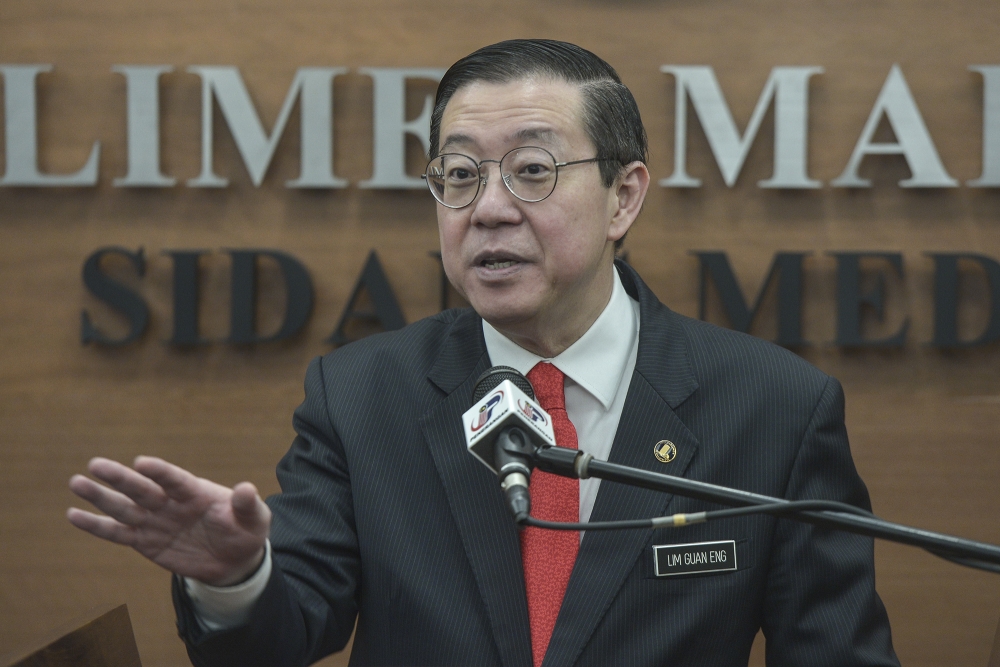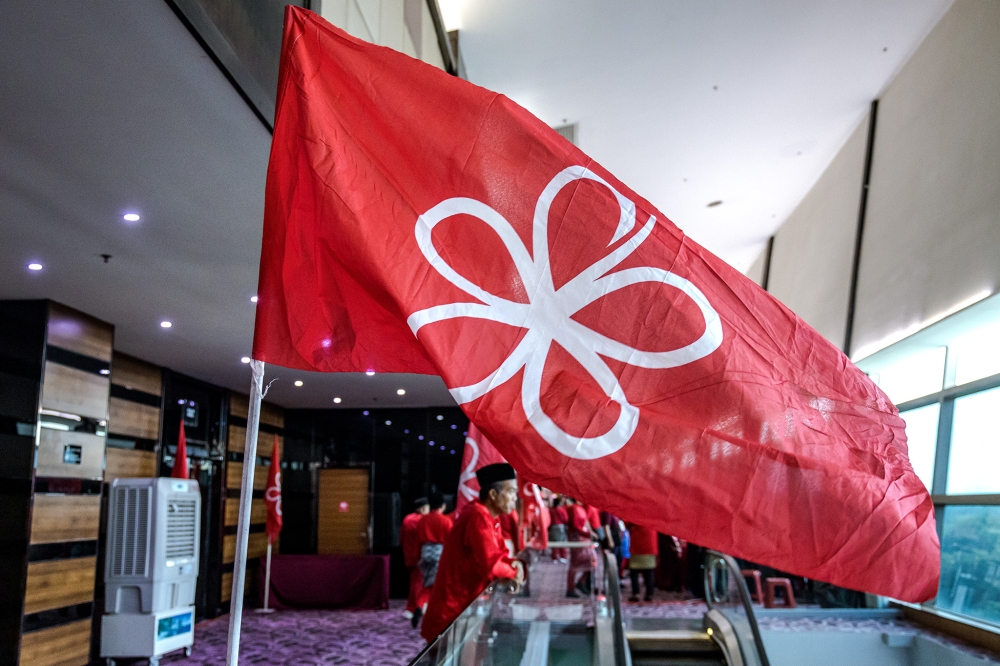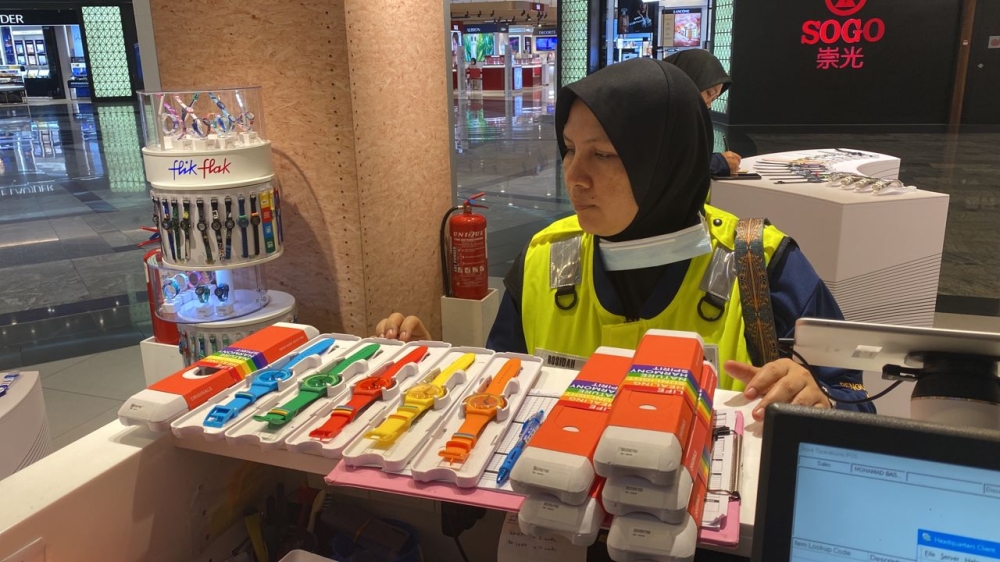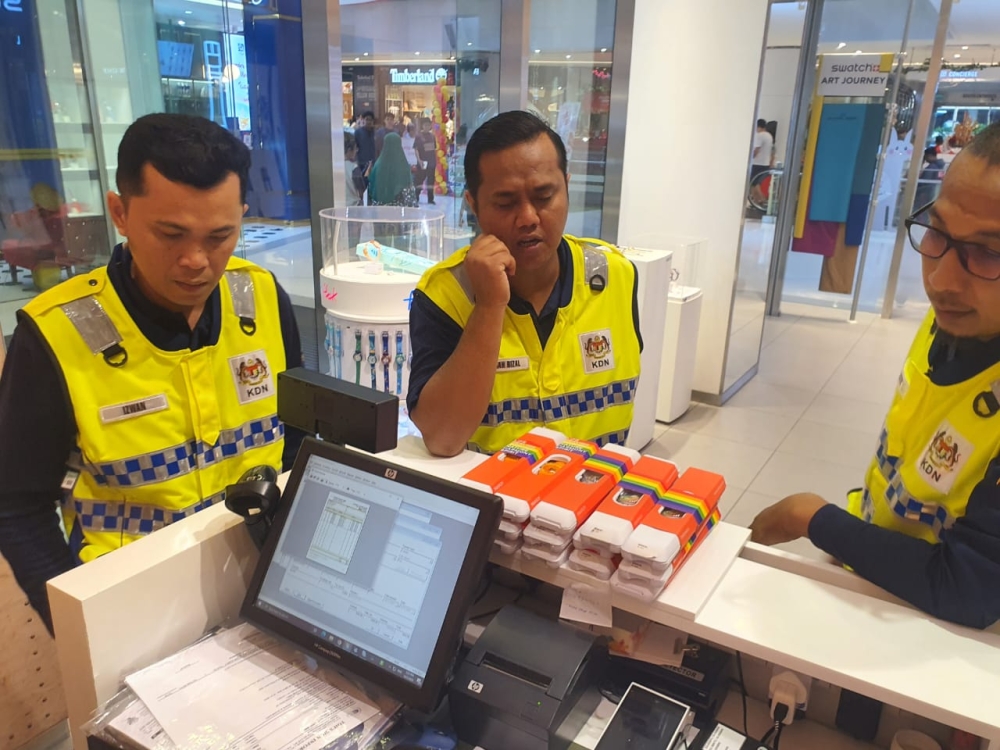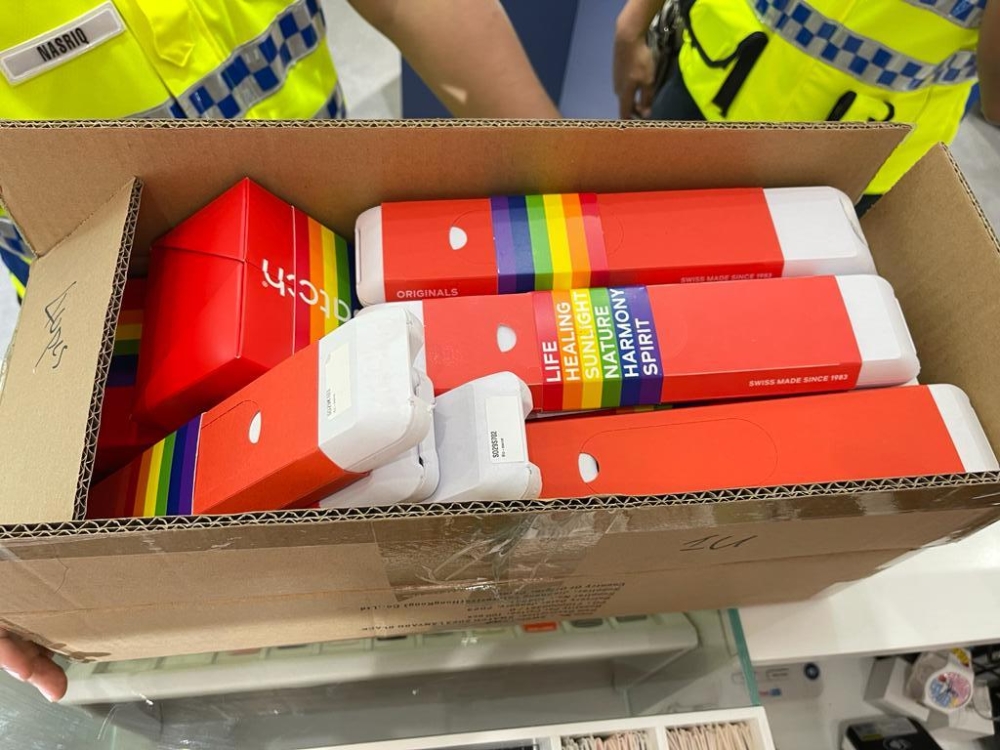KUALA LUMPUR, July 17 — Swiss watchmaker Swatch Group has filed a lawsuit against the Malaysian government and Home Ministry officials to seek compensation and the return of 172 seized Swatch-branded watches which were allegedly linked to Pride, otherwise known as the lesbian, gay, bisexual and transgender (LGBT) rights movement.
In its lawsuit, Swatch Group wants the High Court to issue an order to quash the Home Ministry’s seizure notices in May for the 172 watches worth RM64,795, and a court order for all the seized watches to be returned within five days of the order.
The company is also seeking a court order for compensation, including in the form of aggravated and exemplary damages.
The Swatch Group (Malaysia) Sdn Bhd had on June 24 filed the lawsuit via a judicial review application at the High Court in Kuala Lumpur. It named the four respondents as the Home Ministry chief secretary, the Home Ministry’s enforcement division’s secretary, the home minister and the government of Malaysia.
A judicial review is usually filed to challenge the actions or decisions of the government and public bodies, and is where those filing the lawsuit ask the courts to review those government decisions.
Based on court documents sighted by Malay Mail, Swatch Group had filed the lawsuit as it claimed that the Home Ministry’s officers had acted illegally, irrationally, with procedural impropriety and that their actions were allegedly disproportionate and for an improper purpose.
According to Swatch Group, it had been selling its watches since 1995 in Malaysia via its stores which mostly employ Malaysians and through authorised resellers.
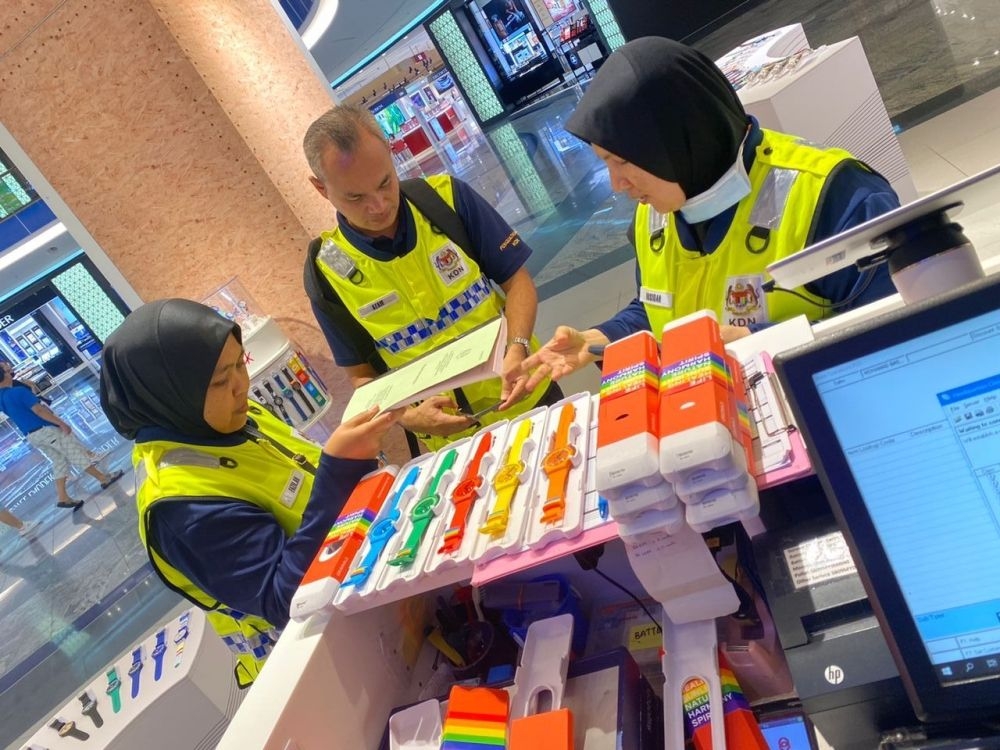
Swatch Group said Home Ministry officers had from May 13 to May 15 raided 16 of its stores throughout Malaysia and seized the 172 watches featuring nine different designs.
The ministry issued seizure notices stating the watches as promoting or having “elements” of LGBT, and giving the reason that the watches were in breach or suspected to be in breach of the Printing Presses and Publications Act (PPPA) 1984.
Out of the 172 watches seized, a total of 143 units featured six designs from the Pride collection launched on May 4, 2023 and which had been advertised on Swatch’s website since that date.
The remaining 29 units featuring three other designs were from the previous years’ Pride collections and had been available for sale in Malaysia since June 2, 2022, or slightly more than 11 months before the Home Ministry’s seizures.
Swatch Group said only 19.52 per cent of its sales in Malaysia are from tourists, while the remaining 80.47 per cent are to Malaysians (47.94 per cent Malays, 26.69 per cent Chinese, 4.59 per cent Indian and 1.25 per cent from other races).
Swatch Group said it had not received any complaints from the public about any of the watches that were later seized.
Among other things, Swatch Group claimed the seizures were illegal, as it argued that the watches are not a publication that can be prohibited under the PPPA. It further argued that this meant the Home Ministry officers had no power under the law to raid its stores and seize the watches.
Swatch Group claimed that the Home Ministry officers had acted inconsistently during the raids on 16 of its stores, as some officers seized all Pride Collection watches including those on display and those in stock, while some only seized watches that were on display, some gave verbal warnings to the store to remove the display, while some asked the staff to turn the loop of the watches around.
Based on previous news reports, some of the seized watches feature loops that have rainbow colours matching the six-striped Pride flag’s colours.
Describing all nine watch designs in the court papers, Swatch Group claimed that eight of the designs do not outwardly express any indication that they are associated with Pride or any similar movement.
Claiming that the seizures were disproportionate and in breach of natural justice, Swatch Group said other companies’ Pride products have been freely available for sale in Malaysia for many years, but said the home minister had not made any order banning the watches, the rainbow motif or anything else linked to Pride before the seizures.
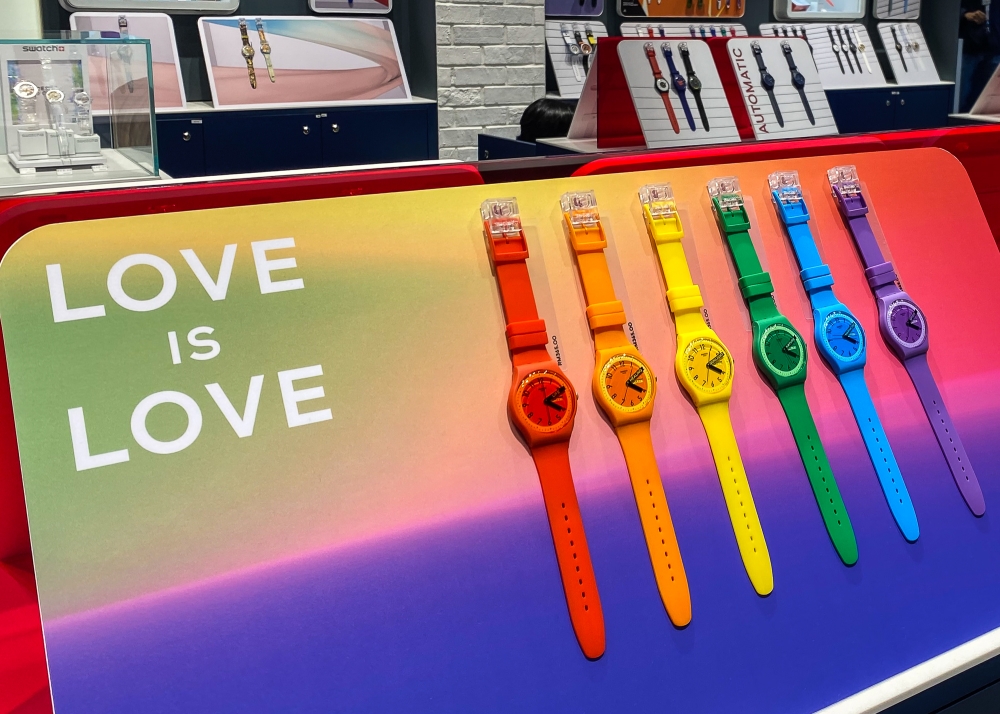
Swatch Group said it was not given prior notice of any complaints or intended action against the watches, and was not given an opportunity to be heard before the seizures.
Swatch Group also argued that the seized watches did not cause any disruption to public order or morality or any violations of the law, saying that there has been no incidents or disruptions since the older designs were made available in Malaysia from June 2022.
Before filing the lawsuit, Swatch Group had through its lawyers sent a June 9 letter to the Home Ministry to demand the return of the seized watches, but said it has yet to receive a response.
Swatch Group said the refusal to return the Swatch watches had breached its constitutional rights to livelihood and property under the Federal Constitution's Articles 5, 8 and 13.
In an affidavit filed to support the lawsuit, Swatch Group Malaysia’s country manager said the company has suffered loss and damage in the form of damage to its trading reputation due to the seizures of the 172 watches with a total retail value of RM64,795, and that its “ability to do business freely is greatly jeopardised”. The company also said that its business and trading figures suffered in the immediate aftermath of the seizures for some time.
The case is scheduled to come up in the High Court on July 20, with Swatch Group’s application for leave for judicial review to be heard by High Court judge Datuk Amarjeet Singh Serjit Singh.
For judicial review applications, the High Court’s leave or permission has to be obtained first, before the actual lawsuit can proceed to be heard. The High Court would hear such a lawsuit if leave is granted, but will not hear the lawsuit if it does not grant leave.












